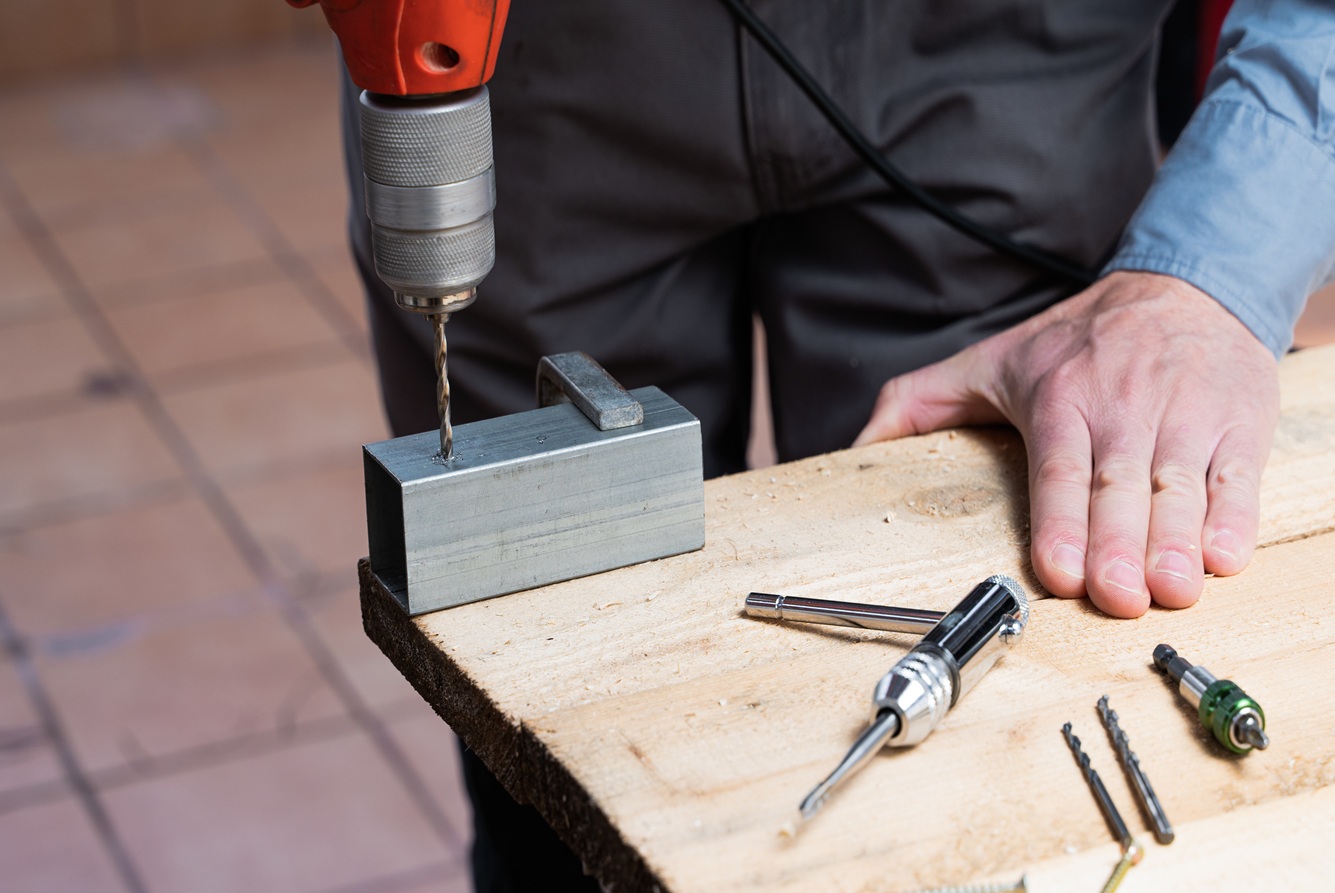

When you are drilling metal for the first time, you are bound to make mistakes, especially when working with thick metals. Many customers ask us, ‘What’s the best speed for drilling thick metals?’ It is always difficult to answer because there are many factors at work here.
No matter where you source your metal, even the highest-quality metal suffers from the wrong drilling speed. Mere precision and power aren’t enough to achieve perfection.
This blog explores the nuances of drilling thick metals and how the type of metal and its source affect results.
Drilling doesn’t start with selecting the drill speed. First, you must understand your needs and the metal you are working with. Metals vary in hardness, thermal conductivity, and resistance.
Properties of some metals are discussed below to help you understand them better:
Mild Steel: It is relatively soft, easy to drill at moderate speeds.
Stainless Steel: It is harder and requires lower speeds and consistent pressure.
Aluminum: It is softer but prone to clogging drill bits; it benefits from higher speeds.
Tool Steel & Hardened Metals: These materials require slower speeds and specialized bits.
Whether sourcing from steel suppliers or steel building manufacturers, always learn about the material grade and type for the right drilling setup.
Drill speed is measured in revolutions per minute (RPM). The appropriate RPM depends on:
The general thumb rule is that the harder the metal, the slower the drill speed. It delicately scoops out the metal without breaking or damaging it.
Here is a simplified RPM guide for you to drill through thick metal with a 1/4″ bit:
Thicker metals reduce cutting efficiency. So, use slower speeds and coolants to prevent overheating.
A drill bit is a small metal bit that rotates and makes drilling possible. It is also available in various types, and choosing the right one is crucial for successful drilling. Here is a small guide to drill bits:
Cobalt Bits: These are tough and best for hard metals like stainless steel.
Titanium-Coated Bits: These are great for longer drill life when drilling mild steel.
Carbide Bits: These are ideal for very thick or hardened metal.
Step Bits: Useful for making large holes in thin or medium steel.
Some tips for successful drilling are:
Adhere to these safety practices to reduce risk during drilling:
Here are some common mistakes that most workers make during drilling thick metal, but you should avoid:
Not all steel is created equal. You must source the metal from reliable and reputable metal suppliers in Albuquerque to ensure:
Steel building manufacturers and contractors who rely on precision know that sourcing matters. Poor-quality material leads to uneven drilling, increased wear on tools, and poor structural integrity.
Finding the best drilling speed depends on understanding the metal and the drill bit you are using. Also, the metal grade and quality are crucial here.
Instead of searching for the metal suppliers and then finding the right drill speed, visit us at New Mexico Metals LLC, where you will find the best quality metals and drilling services. We offer a complete range of metal products and metal-related services, ensuring your project’s success.
Contact us to know more about our services!
Que: What is the best drill speed for stainless steel?
Ans: Stainless steel grades differ in hardness, so depending upon its hardness, you need a slower drilling speed, ideally 300-500 RPM for a 1/4″ bit. Use cobalt bits and cutting fluid for best results.
Que: Why does drill speed matter when working with thick metal?
Ans: A fast speed can cause the bits and the workpiece to overheat, impacting the drill quality.
Que: Can I use a regular drill on thick steel?
Ans: Yes, but only if it has variable speed control and enough torque. For better results, consider a drill press or magnetic base drill with proper settings.
Que: Where can I find high-quality metal for drilling applications?
Ans: You can find the best-quality metal at New Mexico Metals LLC, Albuquerque. We offer a wide range of metals for both retail and wholesale needs.
Que: Do different steel suppliers affect drilling results?
Ans: Yes, poor-quality steel contains impurities or inconsistent hardness, impacting the drill quality.